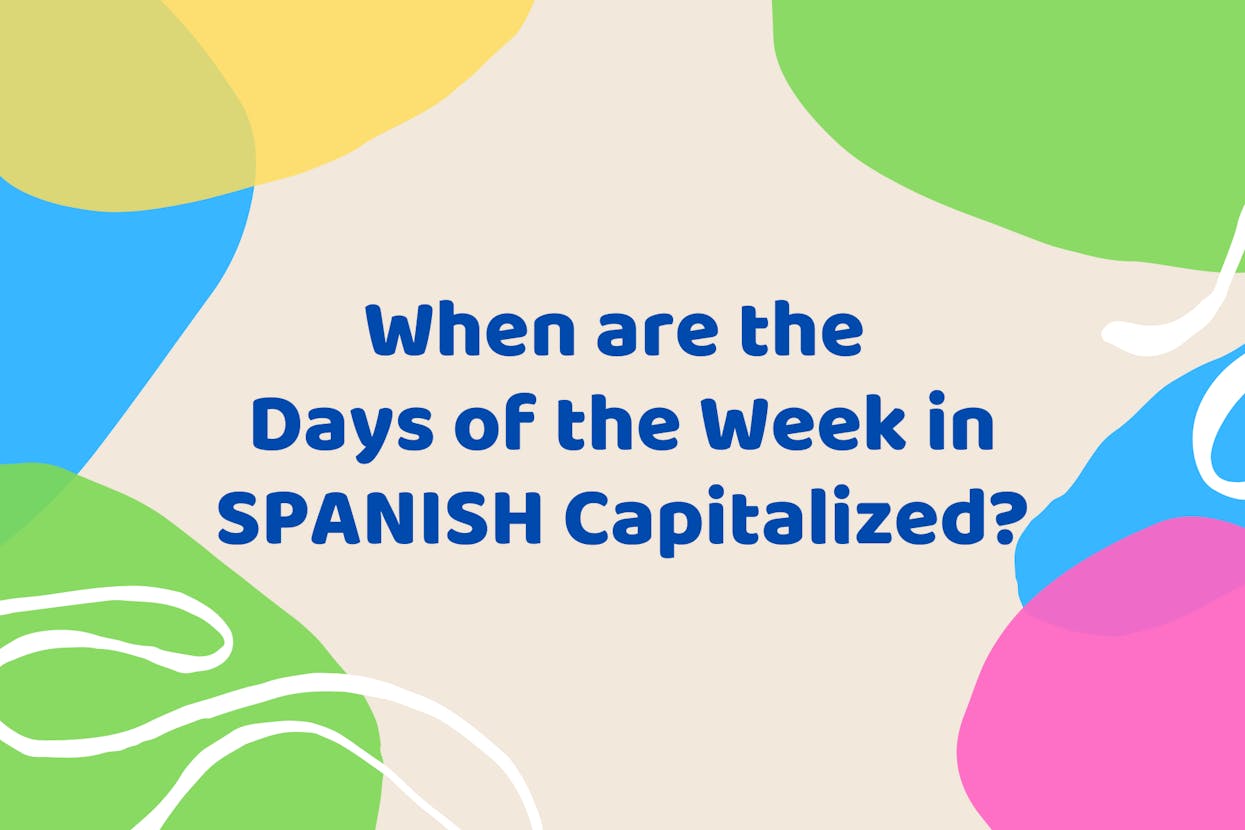
When do we capitalize the Days of the Week in Spanish? Is it true that they are never capitalized? Not really...
November 03, 2020
There's a bit of confusion with the days of the week in Spanish and capitalization. I felt inspired to write this post after seeing some confusion in many Spanish classes and after I was asked about this a few times. I'm a native Spanish speaker (Spanish is my first and main language too) and it's not true that the days of the week in Spanish are NEVER capitalized. Read more below...
When are the days of the week in Spanish capitalized?
- The days and months are always capitalized when they are at the beginning of a text or after a period.
- The days and months are always capitalized when they are part of festivities, historical dates and names. Example: Hoy es Viernes Santo. (Today is Viernes Santo). "Viernes Santo" is the name of a festivity so the word "Viernes" of "Viernes Santo" will always be capitalized even when it's written in the middle of a sentence.
The days and months in Spanish are treated applying the same grammar rule as the rest of the Spanish words: the first word of a sentence will ALWAYS be written with an initial capital.
If a sentence starts with a day of the week, it will be capitalized. Example: Lunes es una palabra (Monday is one word). Example 2: ¿Qué día es hoy? Lunes. (What day is today? Monday). In these 2 examples, the word "lunes" is capitalized. In the second example, the word "lunes" is a sentence of one word since you are replying to the question by just saying "lunes".
If the day of the week is treated as a title of one word it will also be capitalized.
When are the days of the week in Spanish NEVER capitalized?
The confusion about the days of the week in Spanish never being capitalized at all may come because in Spanish the days of the week don't have the special distinction as it happens in English, that the days of the week are always capitalized even when they are written in the middle of a sentence.
- The days of the week in Spanish are never capitalized when they go written in the middle of a sentence as it happens with the rest of the words too! But this doesn't mean that they are never ever capitalized the rest of the times ;-) EXCEPTION TO THE RULE: when the days or months are part of historical dates, festivities and names they are always capitalized even if the day or month is written in the middle of a sentence. Example: Viernes Santo (name of a festivity) or Plaza de Mayo (a historical landmark located in Argentina).
- The days of the week in Spanish may or may not be capitalized if they are written on their own without any other text or punctuation (like a comma or a period). For example, on a calendar or written down in a vertical column. Sometimes we may write a title or a phrase using all caps too or if the word is by itself. Keep in mind that in some cases the word written in a column can be written as a title for that entire column, so in that case (when the day is written as a title) the day will always be capitalized (following the grammar rule mentioned above).
If the days are written in a vertical column...
If they aren't following any punctuation (example: written as a sentence of one word) the days can go written in all caps, with an initial capital or all in lower case.
More info about the use of capital letters (these articles are in Spanish) here and here by RAE (Real Academia Española - Royal Spanish Academy).
I hope this information was helpful and that your questions were answered :) You can learn the days of the week in Spanish here.
---
Jess
Join Our Kid-Safe Platform
CantaConJess.tv
Spanish Songs for Kids
YouTube.com/CantaConJess